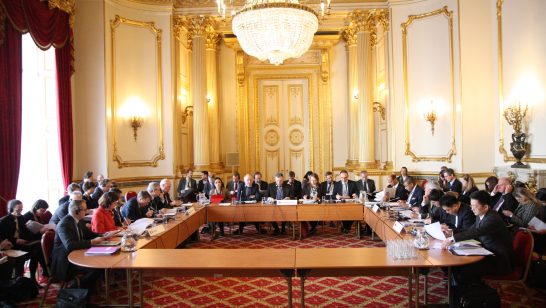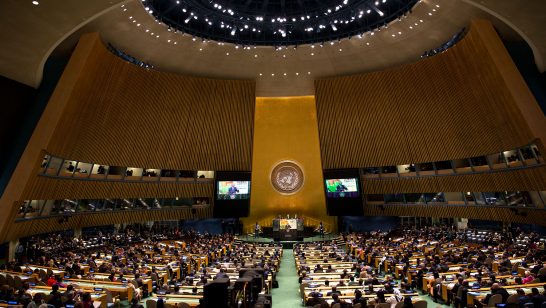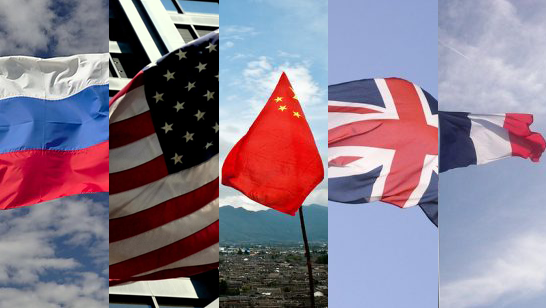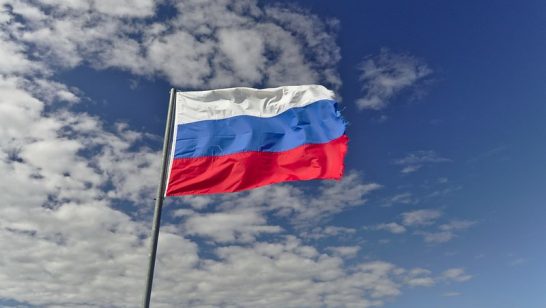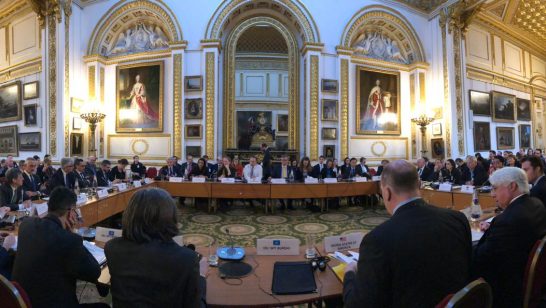The P5 Process brings together the five nuclear weapon states (NWS)—China, France, Russia, the United Kingdom, and the United States—recognised by the Nuclear Non-Proliferation Treaty (NPT) in a dedicated forum to discuss their unique responsibilities under the Treaty. In partnership with the Centre for Science and Security Studies (CSSS) at King’s College London, the ELN led an innovative project funded by the UK Foreign & Commonwealth Office (FCO) to identify potential opportunities and challenges for the P5 Process in advance of the 2020 NPT Review Conference (RevCon). By bringing together leading nuclear experts from civil society and government in Track 2 and Track 1.5 dialogues, the project has developed a parallel process to official P5 proceedings. This culminated in the Civil Society Events at the London P5 Process meeting in February 2020.
This project fosters transparent and constructive dialogue around nuclear responsibilities, strategic risk reduction, nuclear doctrines, and the RevCon, among other topics. The project has identified specific opportunities and practical recommendations for P5 cooperation and progress in the NPT process, which will be discussed in the forthcoming final project report and in a dedicated side event at the 2020 RevCon.
Aims
The key aims of the project are:
- To anticipate opportunities and challenges for the P5 Process through Track 1.5 and Track 2 workshops prior to the February 2020 P5 meeting in London and 2020 NPT RevCon;
- To promote transparency on nuclear policy between the P5 states and civil society actors;
- To develop an inclusive, civil society process parallel to official P5 meetings;
- To identify specific opportunities for P5 cooperation in key policy areas; and
- To promote NPT objectives and positive atmospherics amongst the P5 and wider international community leading to the 2020 RevCon.
Impact
The project has three primary impacts:
- Policy – The project has produced a series of specific, practical recommendations for the P5 states. These recommendations identify opportunities for P5 cooperation in advance of the 2020 NPT RevCon and outline additional opportunities for the future of the P5 Process. Along with additional findings from the project workshops, the recommendations helped to inform the official P5 Process meeting agenda. These outcomes will be featured in a side event at the 2020 RevCon.
- Transparency – The project promotes greater transparency in the P5 Process. In developing a parallel process to official P5 meetings, the project has brought together leading government and non-governmental experts to discuss key issues facing the P5 and NPT. The Civil Society Events in February 2020 represented the largest Track 1.5 gathering of the P5 Process to date.
- Diversity and Inclusion – Engagement with and promotion of diverse views proves a particularly impactful project outcome. The project has featured the forward-looking perspectives of next-generation leaders on the greatest challenges facing the P5; engaged with regionally diverse civil society actors, including representatives from 16 non-nuclear weapon states (NNWS); included participants with diverse backgrounds from academia, government, and industry; and promoted gender balance, with 54% participation by female experts and a dedicated reception in partnership with Women in International Security (WIIS) UK as part of the February Civil Society Events.
